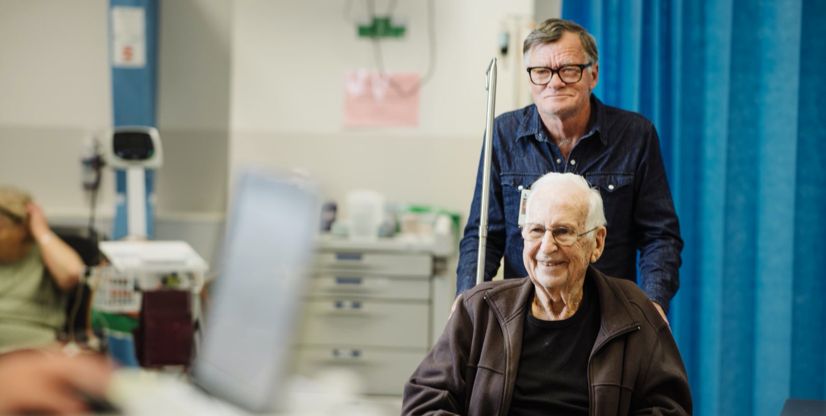Patients & visitors
Patients & visitors
Patients & visitors
Informed consent
- Home
- Patients & visitors
- Patient resources
- Informed consent
What is informed consent?
Informed consent is a process. It is the willing acceptance of a medical treatment after talking about the treatment, it’s risks and benefits and alternative treatments.
Informed consent is an open, two-way discussion between you and your doctor to allow you to make an informed choice about your treatment. A signed consent form is a legal document.
What is financial consent?
Financial consent is when you agree to a medical treatment after talking about the cost information, including likely out-of-pocket expenses (gaps) prior to a treatment.
It is important for you to ask what the costs for a new treatment, medication, test or procedure are. There may be other options which can suit your financial situation.
For example, a new recommended medication may not be covered by the Pharmaceutical Benefits Scheme (PBS) and not Government subsidised which may have a significant out of pocket cost. Your doctor may be able to recommend another medication which is cheaper and as effective.
What information should be given during consent?
Before you can make a decision about a treatment, you need to be given enough information. Your doctor must give you with information about:
- the diagnosis and the likely outcome
- the treatment options available (including no treatment)
- the risks (possible complications) and side effects of each treatment option
- the benefits and likely success of each treatment option
- details about the treatment e.g. who will perform it and when.
If you feel you are not provided with enough information about the treatment - it is important you ask for more information. It is the responsibility of your doctor to give you enough information so that you can give consent.
How can I support myself during consent?
It is important that you have all the information you need to make the decision and take an active role in the decision making process. You can:
- ask for information to be written down
- ask for an interpreter or other communication supports
- ask for time to think about the decision or talk about it with family/loved ones
- ask for a second opinion
- ask about the costs.
Questions to ask your doctor
These questions may help you better understand the procedure:
- How will you perform this procedure?
- What is the aim of this procedure? e.g. cure or pain relief
- What is the success rate of the procedure?
- What are the possible complications? How likely are these complications?
- What are the side effects in the short term and long term?
- How long will it take to recover?
- How long until I am able to return to work?
- Are there costs involved?
- Are there other treatment options? What is the success rate of the other options?
- What will happen if I have no treatment?
What if I have doubts?
Remember, if you feel uncertain about the decision you are making – you have the right to seek the information you need to feel certain.
If you are unsure, you could:
- make another appointment with you doctor to talk about your concerns
- ask your doctor to explain the information again in simpler terms
- ask for a referral to another doctor for a second opinion
- ask for information in another language or for an interpreter
- talk to support groups
- talk through the decision with family/loved ones.
Can I change my mind?
Yes. You have the right to withdraw consent at any time (including during a procedure).
Download as a fact sheet
You can also download the information from this page as a fact sheet.
Links and downloads
- Informed consent (PDF - 222.8 KB)
Contact us
For further information contact:
Patient Safety and Clinical Excellence
Phone: 03 9496 5000












